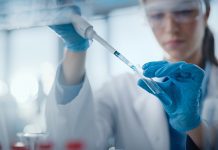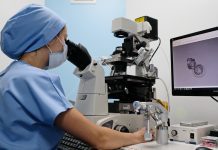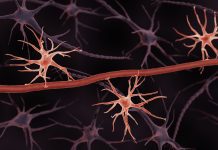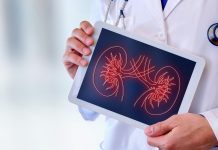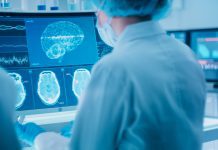A new blood test to improve epilepsy diagnosis
Researchers have found that levels of immune proteins in the blood are higher before and after an epileptic seizure, a discovery which may facilitate...
Revolutionising disease diagnosis with a new ultrasound method
The University of Sheffield has developed a new ultrasound method that could help diagnose abnormal tissue, scarring and cancer.
A new ultrasound method that can...
Paving the way for drug discovery using brain tumour finding
New brain tumour findings could lead to a new type of drug-containing nanoparticle that starves the tumour of energy.
Scientists from the University of Nottingham...
The natural peptide that could reverse obesity-related diseases
Researchers from the University of Birmingham have found that a peptide called PEPITEM could revolutionise the treatment of obesity-related diseases.
Using an animal obesity model,...
Meet the women at the forefront of digital oncology
Creation Healthcare has marked this year's International Women’s Day (IWD) by highlighting five women leading the way in digital oncology.
The theme of this year's...
A new study identifies genetic variants influencing human fertility
A University of Oxford study identifies genetic determinants that could influence fertility and reproductive behaviour in humans.
In the largest study to date, research has...
AI can predict future ulcerative colitis flare-ups
New research shows that an Artificial Intelligence (AI) model could predict ulcerative colitis flare-ups and complications after reading biopsies.
In a new paper by the...
Regular exercise improves mental health in pre-teen years
Research suggests regular exercise can improve adolescents’ mental health and help with behavioural difficulties.
A study by The University of Edinburgh has found that engaging...
Using digital twins to improve care for inflammatory diseases
Researchers from Karolinska Institutet have used digital twins to improve their understanding of inflammatory diseases, potentially leading to new treatments.
The complex mechanisms behind inflammatory...
Breast milk boosts premature babies’ brain development
The more breast milk premature babies are fed in neonatal intensive care, the greater the level of brain development, a new study by The...
Using AI to predict the onset of ALS disease
Researchers from the University of Bielefeld have developed new Artificial Intelligence (AI) methods which can accurately predict the development of ALS in disease.
ALS disease...
Talking therapy trial for adults at risk of self-harm launches
A new trial of talking therapy for adults at risk of self-harm will be trialled by researchers from The University of Manchester.
Talking therapies are...
Changing diagnostic methods for primary ciliary dyskinesia
Researchers from the University of Southampton have recommended a new method for diagnosing primary ciliary dyskinesia in young children.
Primary ciliary dyskinesia is a rare...
Are reproductive factors contributing to cardiovascular disease in women?
A new study by Imperial College London has found multiple reproductive factors are linked to a higher risk of cardiovascular disease in women.
Researchers have...
Improving healthcare AI with patient-reported outcomes
According to a new review from the University of Birmingham, patient-reported outcomes are slowly being integrated into healthcare Artificial Intelligence (AI).
Researchers from the University...
Children’s lung health improved in cleaner air
A new study has shown that when air pollution improved in Stockholm, children’s lung health improved.
Researchers from Karolinska Institutet have discovered that when air...
A new artificial blood-brain barrier model could end animal testing
Researchers from Uppsala University have developed an artificial blood-brain barrier model that can determine the efficacy of anti-body-based therapies and reduce animal testing.
Protein-based biopharmaceuticals,...
Doctors can now asses the likelihood of kidney cancer recurrence
An international study into kidney cancer recurrence has found that doctors can predict the likelihood of a patient’s disease returning by examining DNA mutations...
£1.7m funding for wearable brain imaging system technology
Wearable brain imaging system technology has been awarded £1.7m to accelerate approval for use in hospitals.
Wearable brain imaging can provide accurate measures of brain...
Is ChatGPT the future of antibiotic prescribing?
Researchers from the University of Liverpool have tested whether ChatGPT, an Artificial Intelligence-based chatbot, could be used for antibiotic prescribing.
ChatGPT is a chatbot developed...








